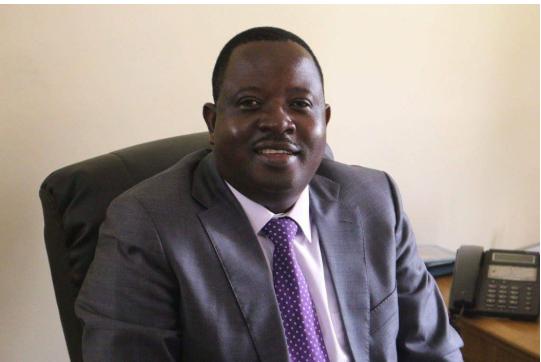Africa-Press – Zimbabwe. Sadness engulfed Rosina Mujakachi after visiting her pregnant sister battling a malaria attack at Karoi District Hospital two weeks ago.
Her sister was among the over 30 people from the surrounding outlying Hurungwe villages receiving treatment for malaria at the hospital.
It is reported that at least five people died this month at the medical institution when malaria cases peaked in the rural communities, including a malaria hotspot, Kazangarare in Hurungwe North constituency.
Mujakachi said her sister, who is from the Kazangarare area, was diagnosed with malaria. Nyama resettlement is also another malaria hotspot that claimed a local headman last week, according to sources.
Mujakachi was grateful that her sister was being treated.
“My concern is on communities which get free mosquito nets regularly but ignore proper use of the nets,” said Mujakachi, adding that most villagers appeared to be reckless about their health.
Hurungwe district medical officer, Munyaradzi Chidaushe, confirmed a malaria outbreak in the area.
“We are calling for precautionary measures from everyone. People must seek medical attention urgently so that we can curb malaria. They must use mosquito nets regularly,” Chidaushe said.
Local transmission in the community has been reduced to very low levels among most outlying rural communities within Mashonaland West province, in three districts, including Chegutu, Mhondoro Ngezi and Zvimba.
Other districts like Kariba, Sanyati, Makonde and Hurungwe are in the control phase where the malaria disease burden is significantly high.
Ironically, last week, Kariba district recorded a surge in malaria cases that reached a peak of 87 cases in one week.
Kariba district medical officer Godwin Muza told stakeholders that the cases were in both urban and rural communities.
Of these 30% are from Msampakaruma rural, with Nyamhunga in Kariba town pegged at 24%.
Kanyati and Kasvisva are at 10% apiece while Gache Gache stands at 8%.
Mahombekombe and Siakobvu have 6% of the cases each.
On April 25, Zimbabwe joined the rest of the world to celebrate World Malaria Day amid renewed calls for community education to support malaria eradication.
Women Action Group director Edna Masiiwa commended Zimbabwe for making positive strides in combating malaria through donor support.
“Fortunately, Zimbabwe has sound policies on malaria with full-fledged personnel at the ministerial level covering all communities with the support of grassroots community health workers. Some donors, including the Global Fund, are pushing the country’s agenda of malaria eradication. We hope it further helps the country to reinvest and reimagine its focus on the malaria thrust,” she said.
Masiiwa, however, noted that the health sector faces challenges of worker flight.
“Retention of some workers in health sector remains a challenge, but we hope and trust that it will be corrected sooner rather than later,” she added.
She bemoaned abuse of mosquito nets in some communities.
“As a country, we must continue with community education to help those mostly affected in remote areas understand the positive gains of using mosquito nets donated freely for their well-being. It’s a challenge that the country faces and needs a holistic health approach to overcome,” Masiiwa, a women’s rights advocate, noted.
Community Working Group on Health executive director, Itai Rusike, admitted that malaria remains a national health challenge.
“The burden is particularly devastating for pregnant women and young children,” Rusike said.
He added that sustained funding was critical to keep prevention and treatment efforts on track.
“If mosquito nets and preventive medicines for pregnant women are unavailable, lives will be lost. When the supply of test kits and first-line treatments is disrupted, malaria cases and deaths spiral. Investing in the fight against malaria not only saves lives but also boosts productivity, creates economic opportunities, strengthens national health security and makes the country safer for everyone,” Rusike said.
“Now is not the time to pause the fight. It’s the time to give everything or risk a surge in malaria cases, growing resistance and the spread of the disease across districts including to non-malaria areas. If left unchecked, malaria will become much harder and more expensive to control, thereby putting millions of lives and decades of progress at risk.”
Rusike, a health advocate, said the country must act decisively to end malaria as a public health threat and build a healthier, safer, more prosperous future for all.
“Everyone must help in the eradication fight,” he said.
Mashonaland West provincial health promotion officer, George Kambondo, said World Malaria Day was a reminder for continued efforts to eliminate malaria and ensure a healthier future for all.
“Let’s work together to raise awareness, support research and advocate for better healthcare systems. Zimbabwe joins other countries in the world to commemorate Malaria Day. Let’s fight malaria. Together, we can make a difference and save lives,” he said.
Kambondo added that there was a need for combined efforts.
“Let’s remember that every life lost to malaria is one too many. By investing in prevention, diagnosis and treatment, we can save lives and build stronger, healthier communities,” he said.
According to government, Manicaland province is the most affected province, contributing 40,7% of malaria cases and 38,8% of deaths in the country, followed by Mashonaland Central, which contributed 28,2% of cases and 24% of deaths.
“Children under 5 years of age account for 14% of the cases. Nationally, there were 36 423 malaria cases with 85 deaths recorded,” the statement by the Health and Child Care ministry said.
On a positive note, Africa stands at the forefront of a revolutionary shift in global health, driven by artificial intelligence (AI) and data science, according to a report released in early April.
The landscape presents an unprecedented view into the potential to improve AI governance in Africa to reduce the risk and stop the perpetuation of inequity.
Titled Governance of Artificial Intelligence for Global Health in Africa, the report was sponsored by Science for Africa Foundation after a culmination of a year-long effort involving convenings across Africa’s five regions, policy analysis and extensive surveys to identify policy gaps and opportunities in AI and data science for global health.
This year’s theme is Malaria ends with us, reinvest, reimagine and reignite, calling for renewed investment, innovation and commitment at all levels of the malaria eradication community to accelerate progress towards ending the disease.
Globally, there were 597 000 malaria deaths in 2023, with 263 million new cases of malaria in the same year.
According to the World Health Organisation (WHO), 95% of malaria cases are in the African region.
The global community recommitted to eradicating malaria in the late 1990s and, as a result, an estimated 2,2 billion cases and 12,7 million deaths have been prevented over more than two decades.
WHO noted that after years of a steady decline, progress has stalled.
“Further progress and decades of hard-won gains are in jeopardy.
Extreme weather events, conflict, humanitarian emergencies and economic stresses are disrupting malaria control efforts in many endemic countries, leaving tens of millions of people with limited access to the services they need to prevent, detect and treat the disease,” WHO said.
It added that without prompt treatment, malaria can rapidly escalate to a severe illness and death.
“It’s time to recommit to ending malaria. We have the knowledge, life-saving tools and targeted prevention, testing and treatment methods to defeat this disease.
We must reinvest in proven interventions, reimagine our strategies to overcome current obstacles and reignite our collective efforts together with countries and communities to accelerate progress towards ending malaria,” WHO said.
For More News And Analysis About Zimbabwe Follow Africa-Press






